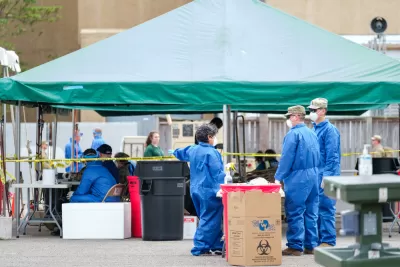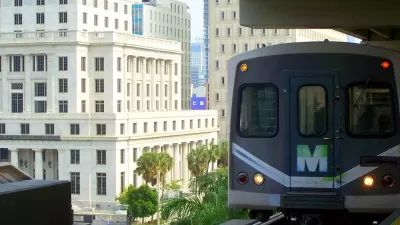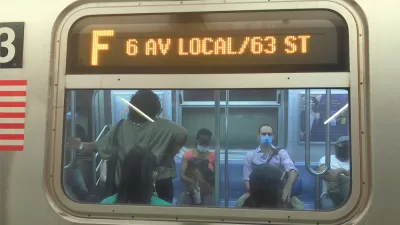Congressional leaders are discussing the shape and size of the next federal stimulus bill. The following critique argues that the next bill should do more to expand testing, contact tracing, and quarantine capacity at the state level.

Ben Adler takes a look forward at the likely shape of the next federal stimulus and makes a brutal assessment of the federal government's approach to the public health and economic crisis facing the country: "Congress remains perversely determined to treat the symptoms, rather than the illness."
Instead of addressing the public health crisis directly (the illness), according Adler, "the disaster that the next round of stimulus will address, according to media accounts, is the same as the last one: the financial losses to businesses and workers caused by the social distancing measures put in place to limit the spread of the new coronavirus."
While funding for hospitals and an economic safety net for businesses indirectly supports the fight against the coronavirus, according to Adler, restarting the economy and defeating the coronavirus will require testing and contact tracing capacity like those in place in South Korea. The United States hasn't even begun to build to build that capacity.
What would such a federal effort look like? For one thing, it would involve a lot more aid to state and local governments earmarked for the purpose. “It means a massive infusion at the state and local level, because the people who are going to do the testing, do the contact tracing, are all state and local people,” said Gregg Gonsalves, a professor of public health at Yale. “The last bill has $150 billion to state and local governments, but they’re losing sales and income tax revenue, so $150 billion doesn’t even begin to meet the lost revenue gap. Money has to flow to the states to do the shoe leather epidemiology.”
More details on how the current federal efforts are falling short of treating the illness, rather than treating the cure, follow in the source article.
FULL STORY: Bailouts Won’t Save the Economy. More Coronavirus Tests Will.

Maui's Vacation Rental Debate Turns Ugly
Verbal attacks, misinformation campaigns and fistfights plague a high-stakes debate to convert thousands of vacation rentals into long-term housing.

Planetizen Federal Action Tracker
A weekly monitor of how Trump’s orders and actions are impacting planners and planning in America.

In Urban Planning, AI Prompting Could be the New Design Thinking
Creativity has long been key to great urban design. What if we see AI as our new creative partner?

King County Supportive Housing Program Offers Hope for Unhoused Residents
The county is taking a ‘Housing First’ approach that prioritizes getting people into housing, then offering wraparound supportive services.

Researchers Use AI to Get Clearer Picture of US Housing
Analysts are using artificial intelligence to supercharge their research by allowing them to comb through data faster. Though these AI tools can be error prone, they save time and housing researchers are optimistic about the future.

Making Shared Micromobility More Inclusive
Cities and shared mobility system operators can do more to include people with disabilities in planning and operations, per a new report.
Urban Design for Planners 1: Software Tools
This six-course series explores essential urban design concepts using open source software and equips planners with the tools they need to participate fully in the urban design process.
Planning for Universal Design
Learn the tools for implementing Universal Design in planning regulations.
planning NEXT
Appalachian Highlands Housing Partners
Mpact (founded as Rail~Volution)
City of Camden Redevelopment Agency
City of Astoria
City of Portland
City of Laramie





























